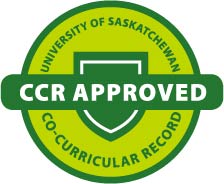Catch Flies with Honey, not Vinegar: A Prescriptive Analysis of the Western Response to the 2014 Ukraine Conflict
DOI:
https://doi.org/10.32396/usurj.v3i2.224Keywords:
Ukraine Conflict, Putin Administration, International Sanctions, Crimea, Politics Economy, RussiaAbstract
After the 2014 Euromaidan protests and deposition of the Ukrainian President Victor Yanukovych, Russia annexed Ukraine's Crimean Peninsula and proceeded to wage a proxy war through pro-Russian seperatists. As a result of these actions, international relations with Russia have sunk to the lowest levels since the Cold War. The deterioration of international relations has included individual and sector-level sanctions being employed between the West and Russia. These sanctions have been implemented with the aim of signaling intolerance of Russia's actions in Ukraine, and to promote reform of its aggressive policies in Eastern Europe. To date, these sanctions have not altered Russian policy, but rather have isolated Russia and pushed it towards increased South American and Asian economic ties. Furthermore, the current economic trough Russia is experiencing is not entirely a result of international sanctions, but is instead largely due to the drop in global oil and gas prices between 2014 and 2017. As such, sanctions are not an effective long-term tool with which to penalize Russia. This paper provides a critical evaluation of the international response to the Ukrainian conflict while emphasizing the importance of Russo-West reconciliation via economic integration. To respond effectively to aggressive Russian foreign policy, it is important to consider the innter workings of the Putin Administration and its post-Cold War political economy. With a focus on mutual interests, this precriptive review puts the Ukrainian conflict and current slump of relations into their proper contexts, while also pushing for the reconsideration of maintaining ineffective retaliatory sanctions.Downloads
Published
Issue
Section
License
Articles: USURJ’s current Publication Agreements apply a Creative Commons Attribution-NonCommercial License (CC-BY-NC) by default. The CC BY-NC license lets others remix, tweak, and build upon work non-commercially. The author(s) can choose a different CC license, as outlined in https://creativecommons.org/about/cclicenses/. Please see the PDF for each article to determine what license is applied to that article. Author(s) can also request to reserve all copyright (All Rights Reserved). If there is no indication for articles published before September 2020, assume the author retains all rights beyond those necessary for publication by USURJ. All articles published after September 2020 will apply one of the aforementioned CC licenses. See the Publication Agreement under the Submission Preparation Checklist or Author Guidelines for more information. Artwork: All copyright for the original artwork remains with the artist unless they wish to apply a Creative Commons (CC) license to the artwork. Please see the PDF for each artwork to determine what license is applied to that artwork.







